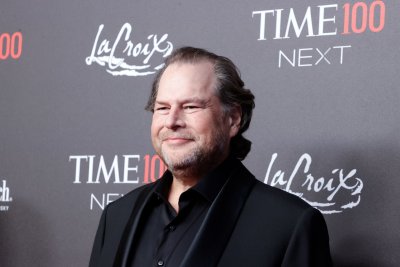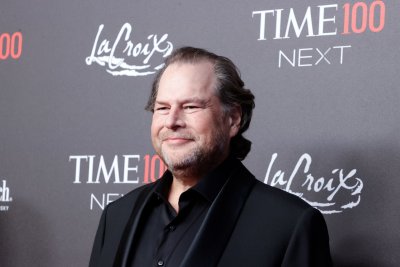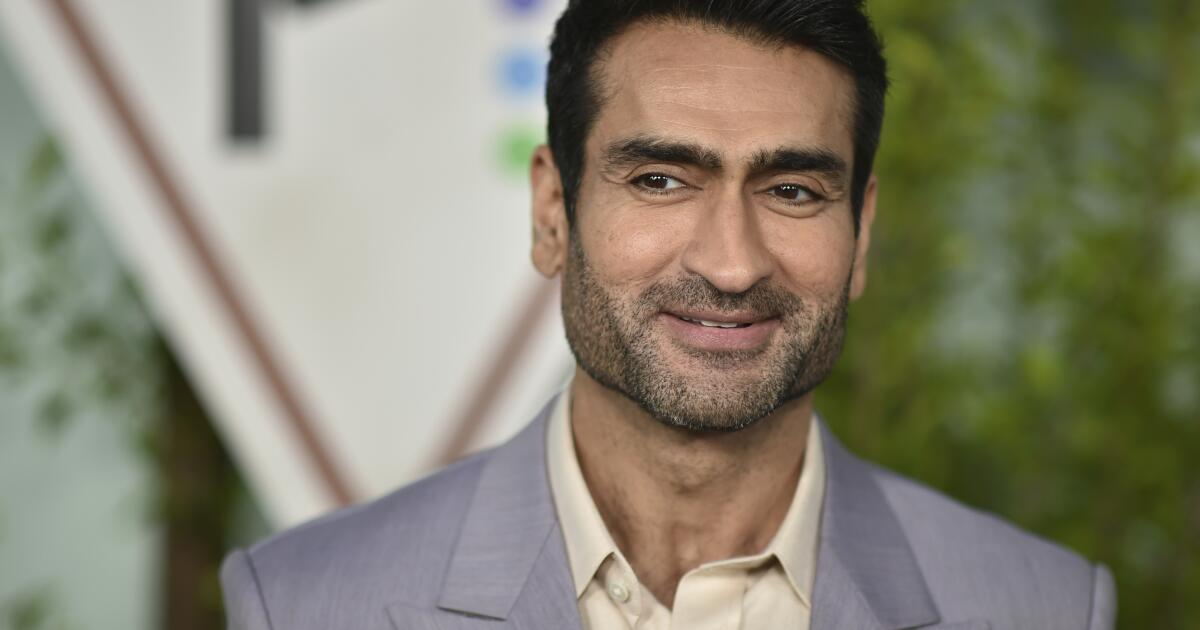Salesforce CEO Marc Benioff apologizes after saying he wanted National Guard in San Francisco

Oct. 18 (UPI) — Salesforce CEO Marc Benioff has apologized for backing President Donald Trump possibly sending the National Guard to San Francisco, where the tech company is based.
Benioff had complained about crime problems outside the company’s annual Dreamforce conference in downtown San Francisco from Tuesday through Thursday, which drew about 45,000 attendees.
“We don’t have enough cops, so if they can be cops, I’m all for it,” Benioff told The New York Times on Tuesday, noting he had the pay for several hundred off-duty law enforcement to help patrol the Moscone Center.
On Friday, he changed his stance.
“Having listened closely to my fellow San Franciscans and our local officials, and after the largest and safest Dreamforce in our history, I do not believe the National Guard is needed to address safety in San Francisco,” Benioff wrote in a post on X in a post on X.
“My earlier comment came from an abundance of caution around the event, and I sincerely apologize for the concern it caused. It’s my firm belief that our city makes the most progress when we all work together in a spirit of partnership. I remain deeply grateful to Mayor [Daniel] Lurie, SFPD, and all our partners, and am fully committed to a safer, stronger San Francisco.”
The Trump administration already has deployed the National Guard to Portland, Ore.; Memphis, Tenn., and Chicago in a crackdown on illegal immigration and crime. Lower courts blocked the deployments of the troops.
On Tuesday, Trump told in the Oval Office that “we have great support in San Francisco” for sending troops to the city, apparently a reference to Benioff. He urged FBI Director Kash Patel to make San Francisco “next” for deployment.
Benioff’s suggestion was condemned by politicians, including California Gov. Gavin Newsom, investors and those associated with the company.
Newsom, who was mayor of San Francisco, is a friend of Benioff and appeared at last year’s company convention.
More than 180 Salesforce workers, alumni and community members wrote an open letter on Friday that was published online. They said his comments have “revealed a troubling hypocrisy.”
“Salesforce was built on empowering communities — not deploying the National Guard into them,” they wrote. “Last week, that’s exactly what you endorsed.’
The letter added: “Walking back your words doesn’t undo the damage.”
Startup investor Ron Conway resigned from the board of the Salesforce Foundation on Thursday. Conway told Benioff in an email that their “values were no longer aligned,” according to the New York Times.
Conway donated around $500,000 to at least two funds tied to Kamala Harris’ unsuccessful 2024 presidential election campaign.
Benioff has donated to both political parties but has supported Harris, Barack Obama and Hillary Clinton for president. He attended a state dinner by King Charles for Trump at Windsor Castle in England on Sept. 15.
His family and Salesforce have given more than $1 billion to Bay Area causes, the San Francisco Chronicle reported.
Benioff, who acquired Time magazine in 2018, has a net worth of $8.8 billion, ranking 381st in the world, according to Forbes.
Laurene Powell Jobs, a pre-eminent philanthropist, criticized Benioff for his remarks.
“When wealth becomes a substitute for participation, giving is reduced to performance art — proof of virtue, a way to appear magnanimous while still demanding ownership,” she wrote in the Wall Street Journal. “That’s the quiet corruption corroding modern philanthropy: the ability to give as a license to impose one’s will. It’s a kind of moral laundering, where so-called benevolence masks self-interest.”
Conservatives have rallied behind the Salesforce CEO.
Venture capitalist David Sacks, who is now Trump’s artificial intelligence and crypto czar, wrote on X : “Dear Marc @Benioff, if the Democrats don’t want you, we would be happy for you to join our team. “Cancel culture is over, and we are the inclusive party.”
Benioff has previously complained about crime in the city. In 2023, he threatened to relocate Dreamforce to Las Vegas over concerns about drug use, crime and homelessness.
Salesforce has attempted to get on the good side of the Trump administration as the company seeks regulatory approval for its proposed $8 billion acquisition of Informatica, an AI-powered cloud data management company.
Salesforce a few weeks ago announced a new line of business, Missionforce, for more revenue from defense, intelligence and aerospace agencies.
The New York Times also reported that Salesforce has offered its services to increase Immigration and Customs Enforcement’s capabilities.
Salesforce is a cloud-based software company founded in 1999 by Benioff, a former Oracle executive.
The company has a market capitalization of $238 billion with $38 billion in revenue in 2025 and 76,453 employees. The public company is a component of the Dow Jones Industrial Average.


